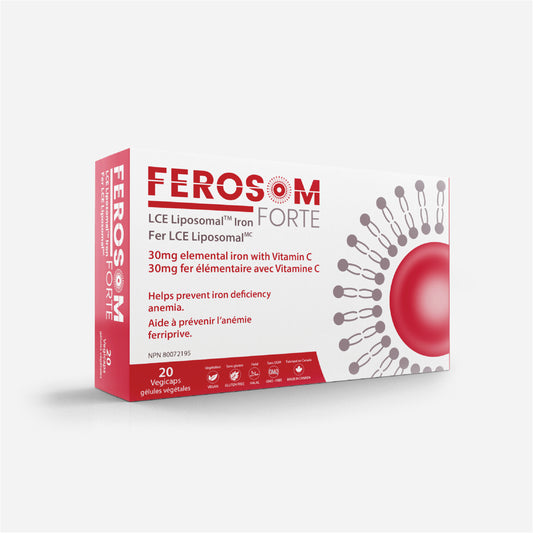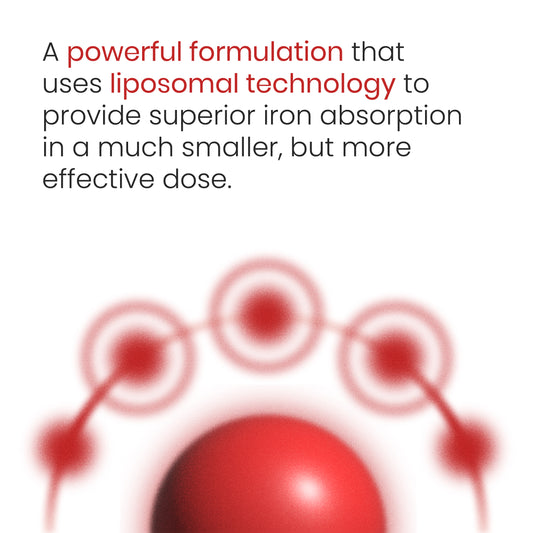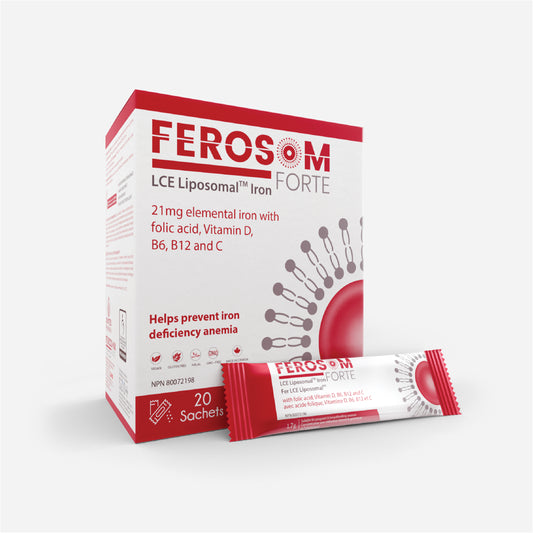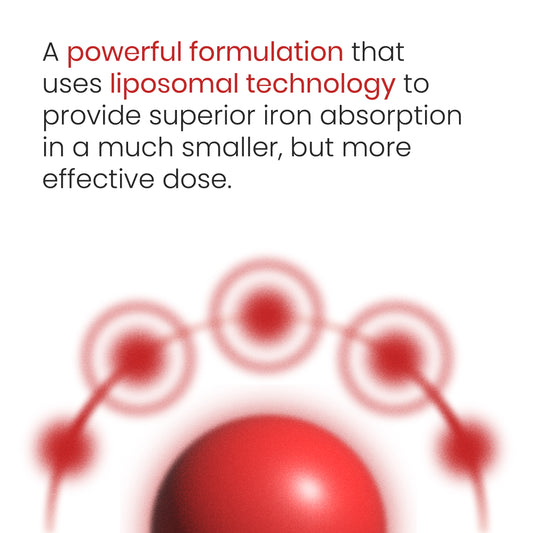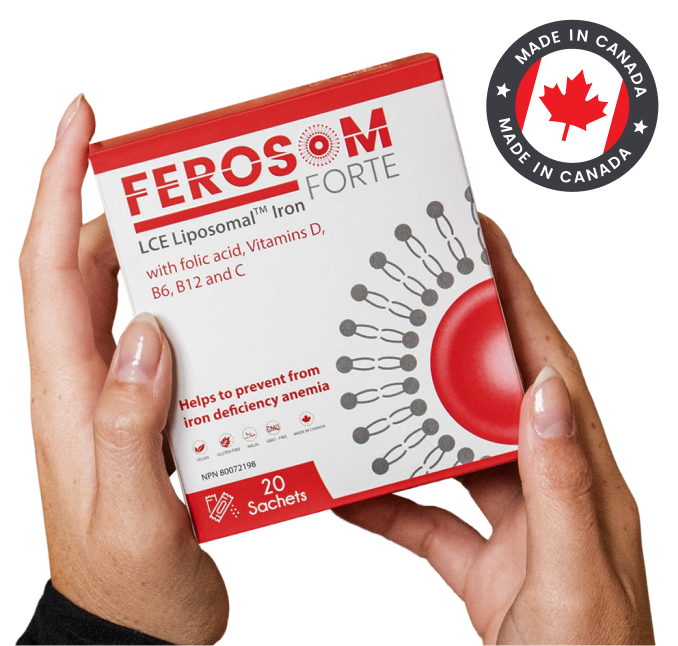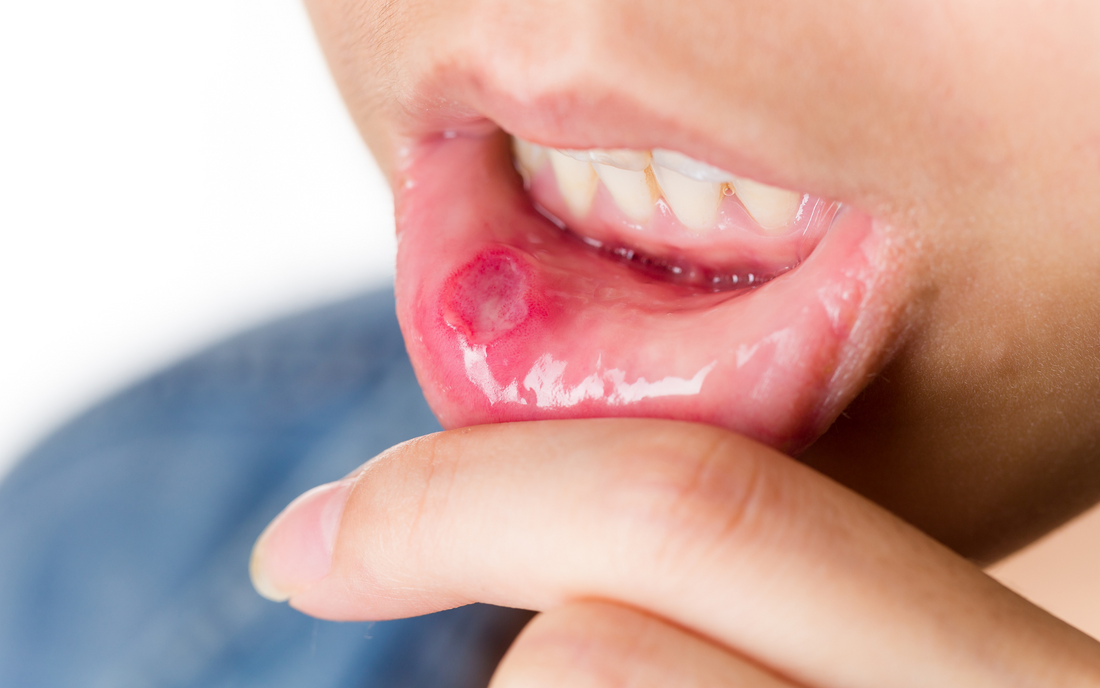

Ugh, mouth ulcers. You know the ones. Those sore patches that pop up on the inside of your mouth every now and then. Almost everyone has experienced one at some point. But where do these frustrating sores come from? And what does iron deficiency have to do with it all?
Also known as canker sores, mouth ulcers are white or yellow patches that are typically surrounded by red inflammation. There are two types of canker sores: simple and complex.
Simple canker sores are the most common and will show up about 3 or 4 times in a year, usually lasting for a week each time. Complex canker sores are larger, more painful, and can sometimes last up to six weeks. These are more rare and far more painful, often making eating and drinking feel impossible.
Whether your mouth ulcers are simple or complex, there are several potential reasons why they exist in the first place. From low iron to high acidity, here are all the main causes of canker sores — and how you can prevent these pesky pains.
What are the common causes of mouth ulcers?
Mouth Injuries & Irritations
Have you ever chomped down on your gum by accident and wound up with an awful canker sore? You’re not the only one.
Trauma or injury to the inside of the mouth is one of the most common culprits behind mouth ulcers. This could include biting your gums or tongue, eating something rough or hard, irritating dental equipment (like braces), harsh mouthwashes, brushing your teeth too hard, or not brushing enough.
Vitamin Deficiencies
When your body isn’t getting the amount of vitamins it needs to thrive, it finds ways to tell you. Canker sores are the perfect example.
Vitamin deficiencies can lead to canker sores because your body doesn’t have what it needs to keep your mouth bacteria naturally balanced and healthy.
Other Causes
You might also suffer from a canker sore if you:
- Feel stressed, burned-out, and fatigued.
- Eat highly acidic fruits and vegetables, like oranges, lemons, and tomatoes.
- Have a poor immune system.
- Suffer from certain infections, such as herpes or chickenpox.
- Take a large amount of nonsteroidal anti-inflammatory drugs, like ibuprofen.
But one of the top reasons why canker sores keep cramping your style? Nutritional deficiencies, from folic acid to zinc, calcium, and — the big one here at Ferosom — iron.
Can low iron cause mouth sores?
Absolutely. In fact, a recent study found that 66% of mouth ulcer cases also had lower than normal ferritin levels.
What’s ferritin? Glad you asked. Ferritin is a fancy word for a protein where iron is stored in the body. If you have low levels of ferritin, it means your body doesn’t have enough absorbed iron to work with. This can lead to iron deficiency anemia, which has a ton of negative effects on the body, including:
- Weakness and fatigue
- Chest pain
- Headaches
- Shortness of breath
- Enlarged heart and/or heart failure
- Compromised immune system
- Impaired thinking
- Poor infection recovery
- And, of course, mouth ulcers.
Can anemia cause other mouth problems?
Unfortunately, the answer is yes. Iron deficiency anemia can damage the surface of your tongue, making it feel sore seemingly out of nowhere. Low iron can also cause red, flaky, painful cracks at the sides of your mouth.
What is the best way to treat a canker sore?
Canker sores can typically heal without treatment after a week or two. However, there are a number of over-the-counter products that can help ease the pain while it heals.
If the canker sore is complex or not healing, you may need a prescription to treat it. Your doctor might suggest an antibacterial mouth rinse or corticosteroid ointment.
When treating a canker sore, it’s also a great idea to have your doctor screen for iron deficiency anemia. Since it’s such a common cause of mouth ulcers, you might be able to catch the culprit red-handed and work towards increasing your iron intake through solutions like iron supplements.
Ferosom Forte is an iron supplement that is proven to work as well as IV iron. It has a proprietary LCE coating and liposomal form, so it can bypass your stomach acid and achieve a higher absorption rate than other iron supplements (without the awful side effects).
How should I prevent mouth ulcers?
Once you know the main causes of mouth ulcers, you can work towards preventing them by doing the opposite. Here are a few of the best ways to keep canker sores at a distance.
- Avoid overly acidic, hot, or spicy foods that might irritate the mouth.
- Don’t gnaw on your gums and chew your food slowly to avoid biting your gums or tongue.
- Brush your teeth with a soft-bristled toothbrush and floss every day.
- Keep your immune system strong with a healthy, balanced diet and vital daily supplements.
Most of all? Ask your doctor to help you identify any vitamin or nutritional deficiencies and take action to turn them around. For example, taking a daily iron supplement to avoid anemia-related canker sores.
Ferosom Forte is clinically proven to boost your iron and ferritin levels. It’s microencapsulated in Liposomal form, which means it doesn’t have to be converted for your body to absorb it. And with the addition of our proprietary LCE coating, Ferosom Forte avoids acid breakdown in the stomach and goes right to where you need it most.
Plus, it’s available in both sachet and capsule form, so you can enhance your iron any way you want to. Ready to kick those cankers to the curb?

